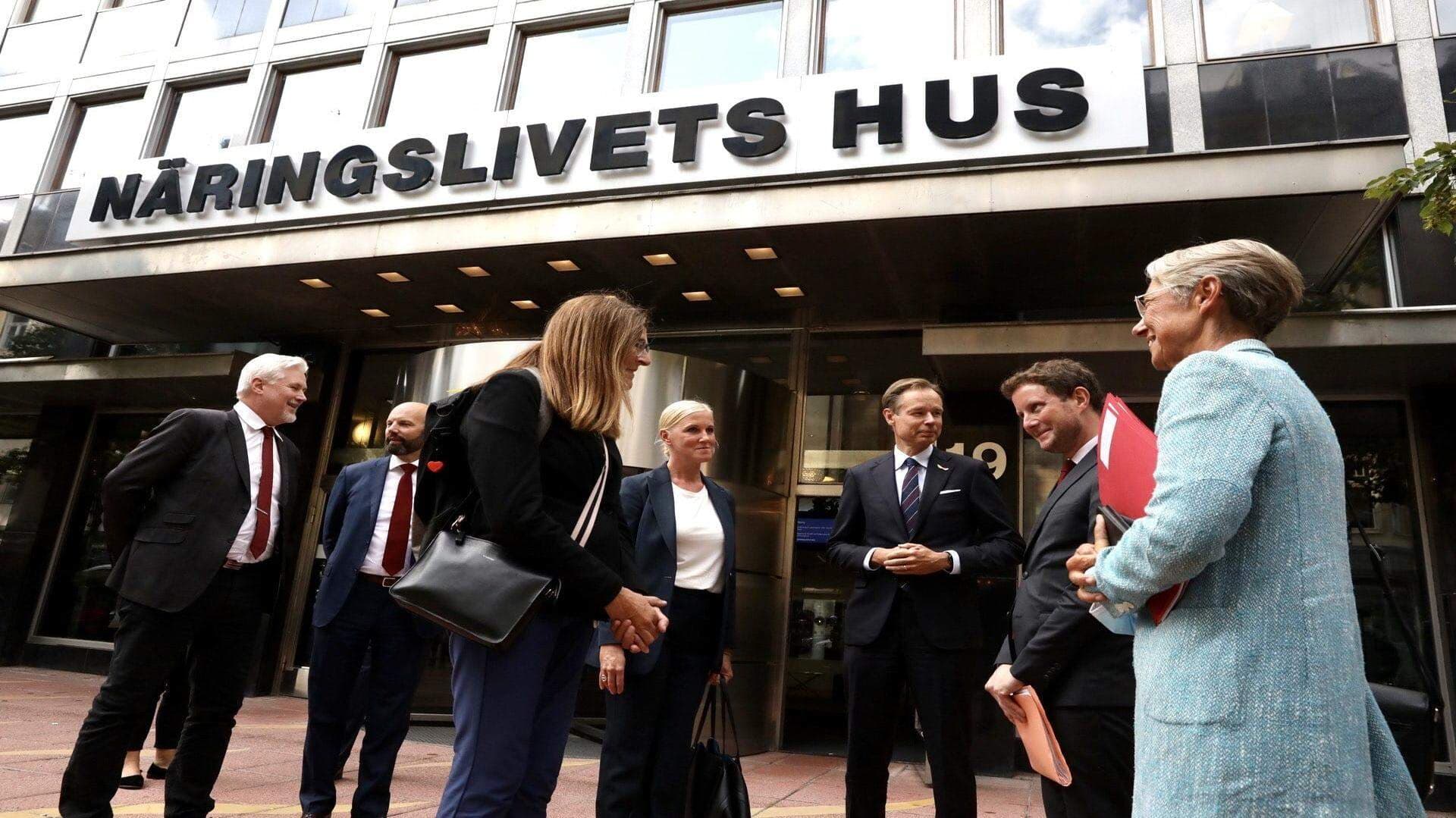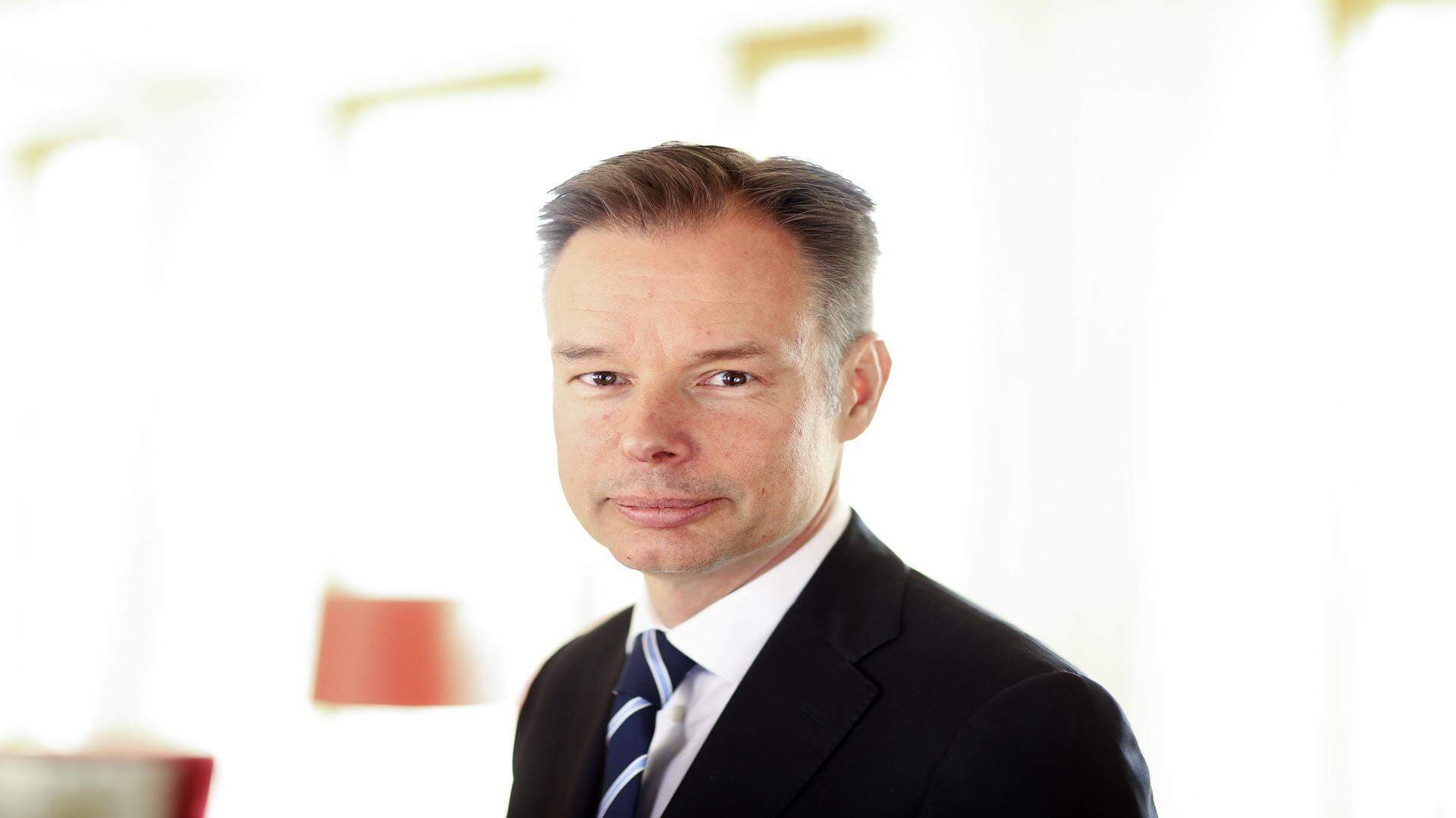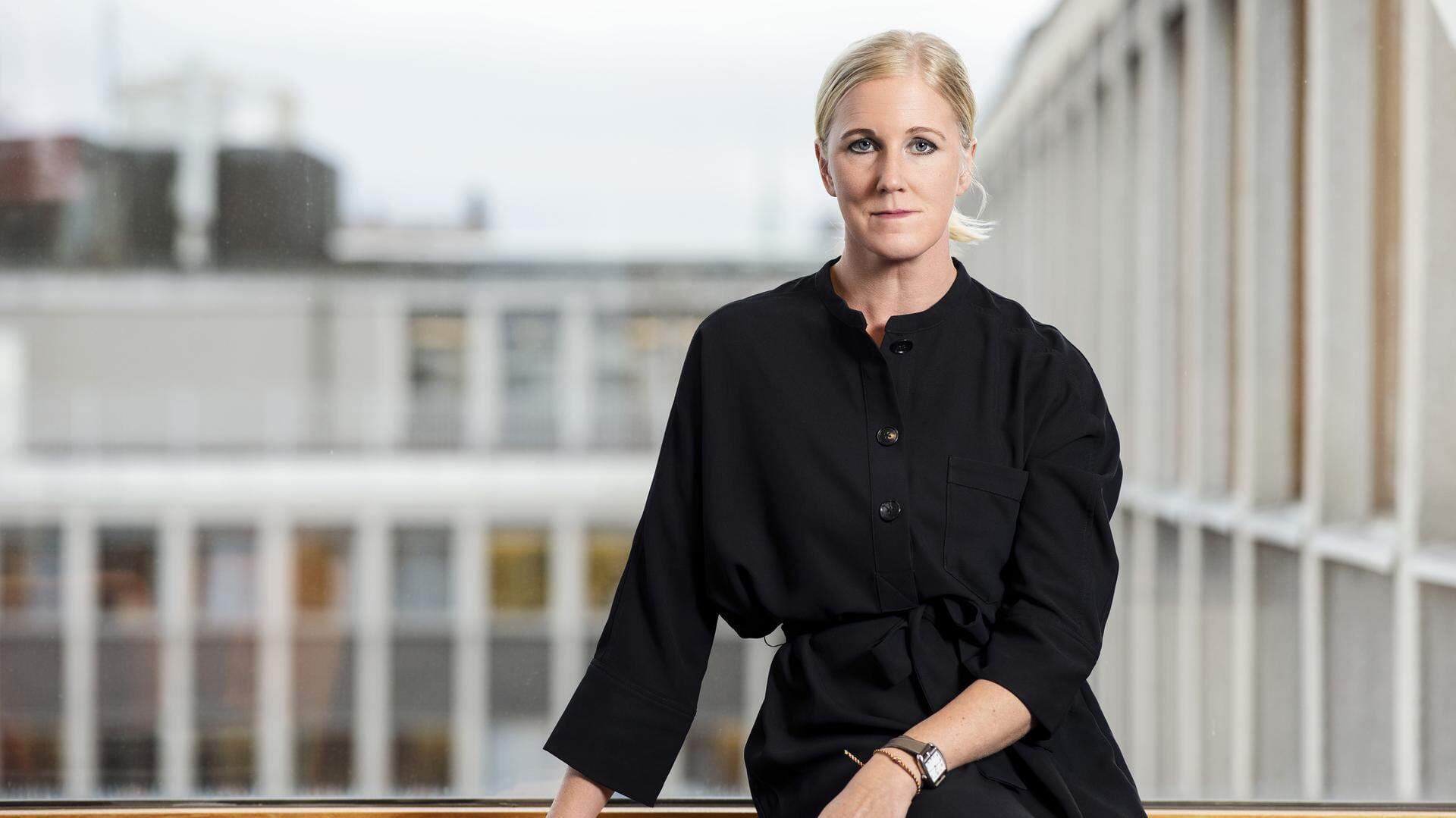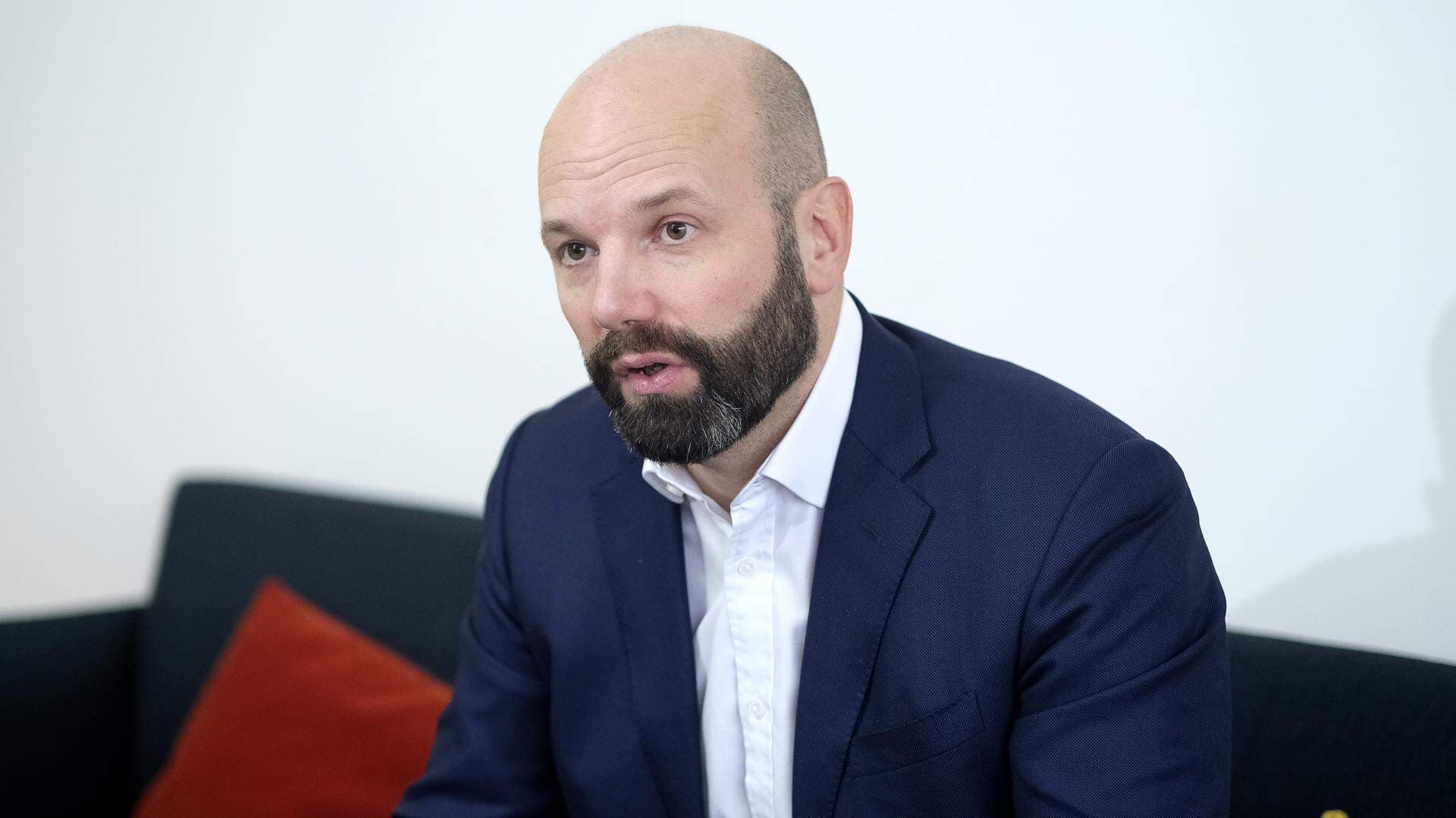The Swedish model in focus as French ministers visit the Confederation of Swedish Enterprise
The Confederation of Swedish Enterprise recently organised a high-level meeting for leading French ministers visiting Sweden, who wanted to meet the social partners in order to learn more about the Swedish labour market model. The meeting also provided a platform for closer contacts ahead of the upcoming EU Presidencies, which France will hold in the first half of 2022 and Sweden in the first half of 2023.

Some twenty people were present at the meeting held at the Confederation of Swedish Enterprise. In addition to French Labour Minister Elisabeth Borne, and EU Minister Clement Beune, French Ambassador Etienne de Gonneville also attended. Therese Gouvelin, the First Vice President of the Swedish Trade Union Confederation (LO), Torbjörn Johansson, LO’s Negotiations Secretary, and Karla Wixe, International Secretary at LO, were present at the meeting as well. Fredrik Persson, President of the Confederation of Swedish Enterprise, chaired the meeting, supported by Mattias Dahl, Deputy Director General and Head of Labour Market and Labour Relations, Anna Stellinger, Head of International and EU Affairs, and John Wahlstedt, Head of Labour Law and General Counsel.
Fredrik Persson sees the meeting as a starting point for a deeper dialogue with the French delegation:

– A direct and constructive dialogue with representatives from the government of one of the EU’s most important countries opens up great potential opportunities. In this case, we were able to have a very open conversation on why Sweden, and we, the social partners, are so strongly opposed to European legislation in the area of labour market. At the same time, however, the meeting gave us the opportunity to discuss what we would like the EU to focus on.
What was the main outcome of the meeting?
– Obviously, that the French EU Minister and Labour Minister gained a more in-depth understanding of our views on what the EU should be doing less of and what the EU should be doing more of. The ministers left the meeting with a clear picture of how the Swedish labour market actually works in practice. In fact, Sweden and France share more common interests in European policy than is usually apparent, says Anna Stellinger.

– We are often described as opposites on many issues. France traditionally favours a more protectionist approach in many fields. Sweden, on the other hand, stands up for free movement within the EU and for open trade relations with the outside world. However, talks like this can go beyond the stereotypes and lead to deeper conversations and a deeper understanding. At the end of the day, our views on the importance of a strong EU and a robust internal market are in reality quite similar, Anna Stellinger continues.
What role can the Confederation of Swedish Enterprise play in setting the agenda for the upcoming Swedish Presidency?
– Over the past months, we have done quite some work on the priorities that we believe Sweden should pursue before and during its EU Presidency. Indeed, with 1 January 2023 rapidly approaching, the business community now needs to provide clear and constructive proposals on what is needed to make the EU stronger. We look forward to a productive dialogue with the government and officials, both in Stockholm and in Brussels, Stellinger says.
Why was it important to discuss social policy?
The Social Pillar, adopted at the Gothenburg Social Summit in 2017, has been France’s core issue. This sets out 20 rights and principles for supporting fair and well-functioning labour markets and welfare systems.
However, Mattias Dahl, Deputy Director General and Head of Labour Market and Labour Relations at the Confederation of Swedish Enterprise, points out that European legislation in the field of social policy is the wrong way to go.

– We need to protect the various different labour market models that exist and actually work. We are not alone in holding this view, and we have high hopes that we can shift the focus away from legislation and on to other ways of achieving a more social Europe.
France is one of the countries in the EU that seeks to legislate on minimum wages. Therefore, as it takes over the Presidency in 2022, the wage issue will be central.
How receptive were the French ministers to Swedish employers’ views?
– We felt that the French had developed a better understanding of our model - where wages are set exclusively through collective agreements - and why we are opposed to legislation, says Mattias Dahl.
– France does not want to weaken our model, and we therefore believe that Sweden - together with France and others - can find a way forward to preserve the Swedish labour market model. We agree with the French government’s ambition of ensuring that workers are not exploited through unreasonably low wages. However, EU legislation that risks undermining well-functioning national wage-setting models is not the best means to achieve this. I hope and believe that we now have a common understanding on this issue, concludes Mattias Dahl.